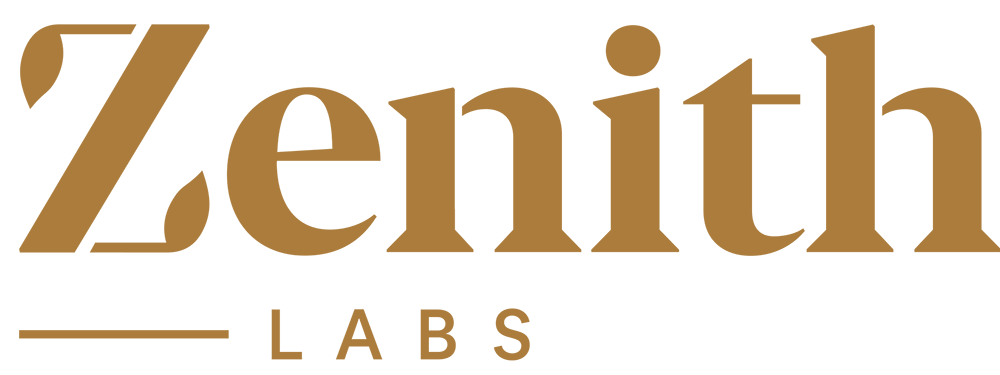Can you hear me? I said, can you hear me? If you’re one of the millions of people that suffer from diminished hearing, decreased hearing, Tinnitus, swishing, ringing, or buzzing in your ears, you need to read on!
Types of Hearing Loss
Hearing loss is a big deal. It’s estimated that 48 million Americans suffer from diminished hearing or Tinnitus. In fact, after the age of 60, about a third of Americans suffer from diminished hearing. It affects quality of life, relationships, and even compensation from work.
There are two different types of hearing loss. The first type is conductive, which is associated with the middle ear where your eardrum and tiny little bones are that help conduct sound. The other (and most common type) is sensorineurial. This affects the inner ear, or cochlea, which has hair cells that vibrate when sounds come into the ear. Those hair cells can get damaged by different reasons such as oxidation or inflammation.
Fun Fact: 44% of carpenters and 48% of plumbers suffer hearing loss in their 50s.
There are also certain risk factors for hearing loss: cardiovascular disease, diabetes, certainly age, genetics, loud noises, and certain prescription medications. In particular, antibiotics, ED medications, aspirin, and drugs or medications that treat hypertension.
How To Restore Hearing Loss
Luckily, there are things that we can do about it. There are natural ways of helping to prevent hearing loss and restore hearing.
1. Melatonin and sleep
Studies have shown that long sleep duration and a sleep hormone called Melatonin can help improve hearing. Melatonin is a powerful hormone that protects the hair cells of the Cochlea to prevent the advancement of hearing loss.
2. Hormones
We know that hormones play a part in hearing ability. Low testosterone increases the rate of hearing loss, whilst estrogen seems to be protective. That’s one of the reasons why hearing loss is more prevalent in males than females. In fact, a drug called Tamoxifen which inhibits estrogen potentiates Cochlea damage or damage to those hair cells.
DHEA, which is an adrenal hormone, is protective for cochlea damage. You can get DHEA over the counter and take it as a supplement. Aldosterone is another hormone that can help reduce hearing loss. Go to the doctor’s for a check to ensure your hormone levels are all well-balanced.
3. Diet
Make sure that your diet is anti-inflammatory. Avoid foods like saturated fats, high salt foods, high sugar foods, high glycemic foods, and alcohol. There’s been a study that shows that consuming cold foods contributes to hearing loss. Try to reduce your intake of processed meats and dairy products.
You want to make sure that your diet is high in nutrients like iron, calcium, vitamin D, vitamin A, other carotenes, folic acid, vitamin C, and magnesium. Individuals in one study showed that if their levels of polyunsaturated fatty acids such as Omega 3, 7, and 9 were high, they were less likely to experience hearing loss.
Fun Fact: An herbal extract from the Pacific islands called “Noni” and is also protective for hearing loss.
Oxidation, inflammation are killers to those hair cells in the Cochlea. Eat foods such as pumpkin seeds and foods high in lycopene like tomatoes, watermelon, carrots, mango, squash. Other great foods to include in your diet are those that are high in zinc, like spinach, kale, cashews and mushrooms. Additionally, foods that are high in biotin such as berries, bananas, peanuts, beans, legumes, and green shard are also chock full of benefits.
4. Foods high in proanthocyanins
Green and black teas have been shown to be protective against cochlea hair cell damage. Any foods that are high in proanthocyanins are great for helping reduce hearing loss. So, start eating more berries, cherries, and cruciferous vegetables such as broccoli and cauliflower. These have all been shown to be protective against the oxidative stress that accompanies hearing loss. Black pepper and tumeric are also herbs that have been studied.
We’ve actually created a supplement called Hearing Times Three that has been remarkably beneficial and effective at preventing hearing loss and, in many cases, restoring hearing loss. It has high levels of vitamin A, vitamin C, folic acid, B 12, zinc, CoQ10, and Acetylcysteine or NAC. It has herbs like astragalus, ginkgo, chrysanthemum, resveratrol, and Gouda Cola. All of these in studies have been shown to help hearing loss and Tinnitus, or that sensation that something is buzzing or rushing in your ears.
If you liked this video/article and found it useful, do share it with your friends and loved ones. Subscribe to the Youtube channel for weekly tips on new tools and techniques to improve your health and well-being.
I believe in the original meaning of the word doctor, ‘docere’, which means teacher. I’m here to help educate you on how to take care of yourself in ways that you may not have heard of before, but that are effective. I always want to hear your ideas and feedback so be sure to leave me comments below!












